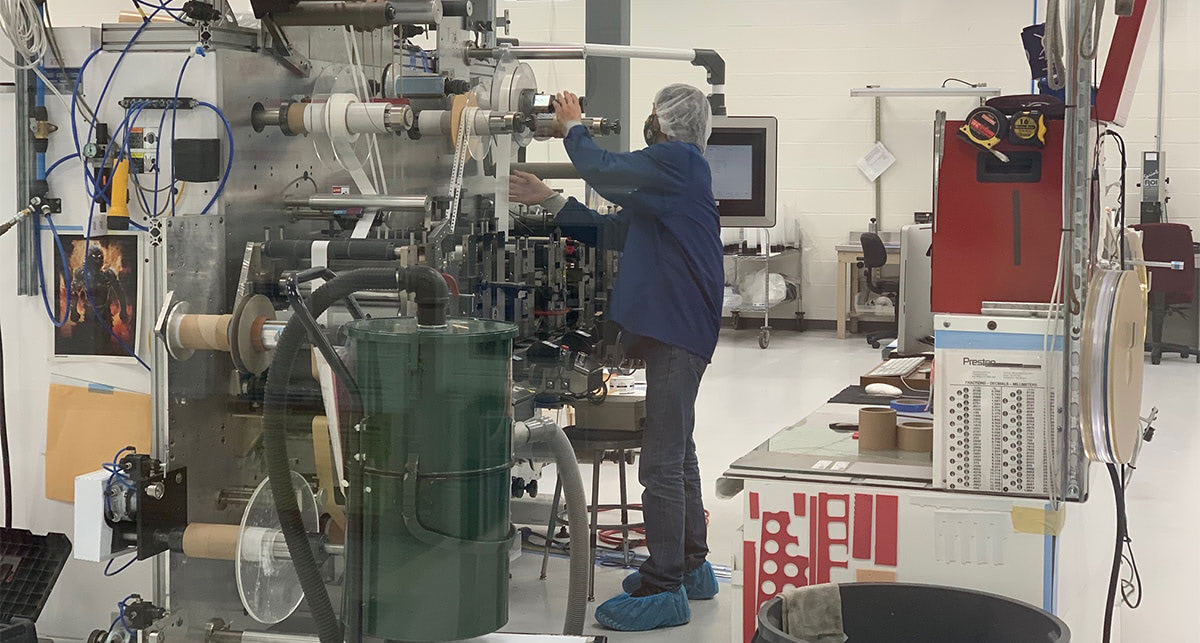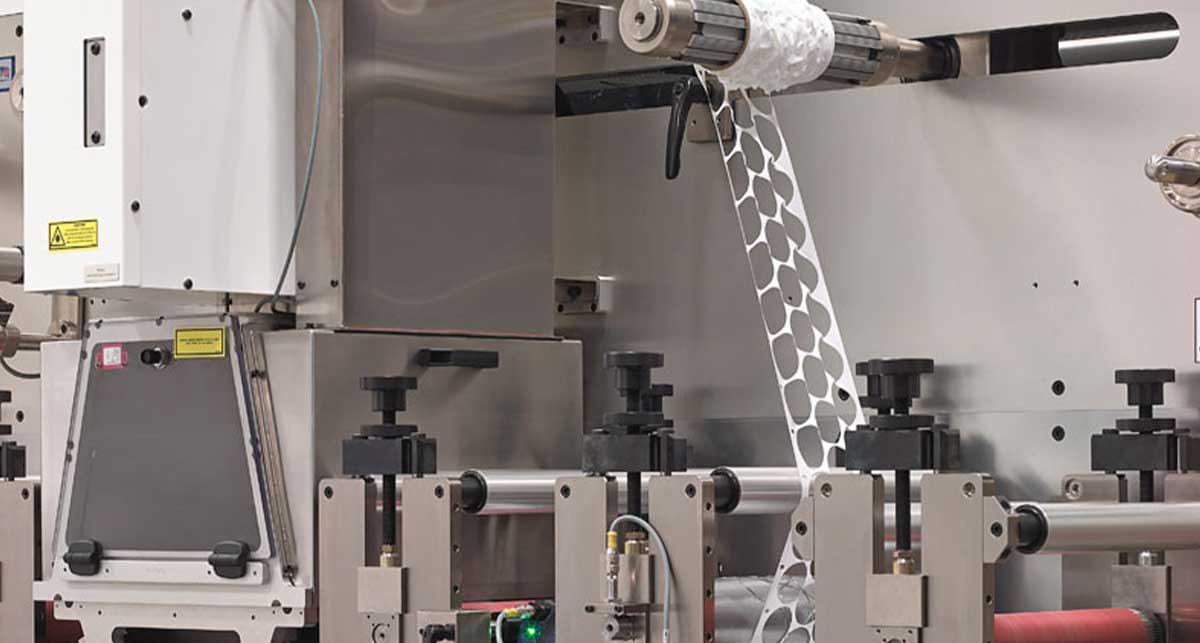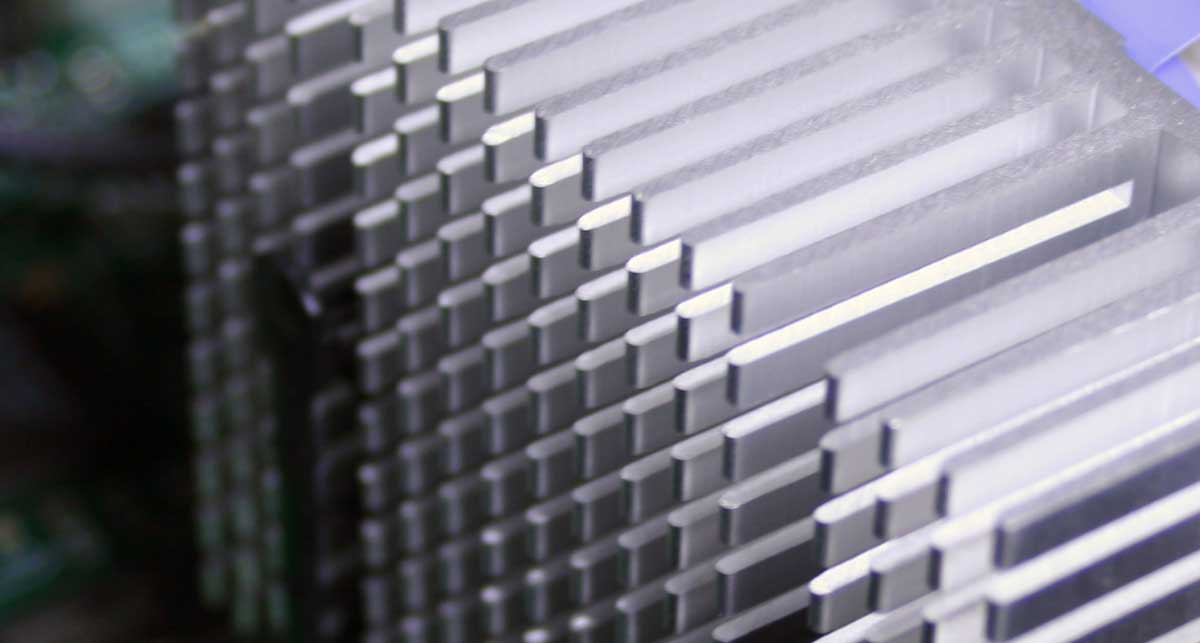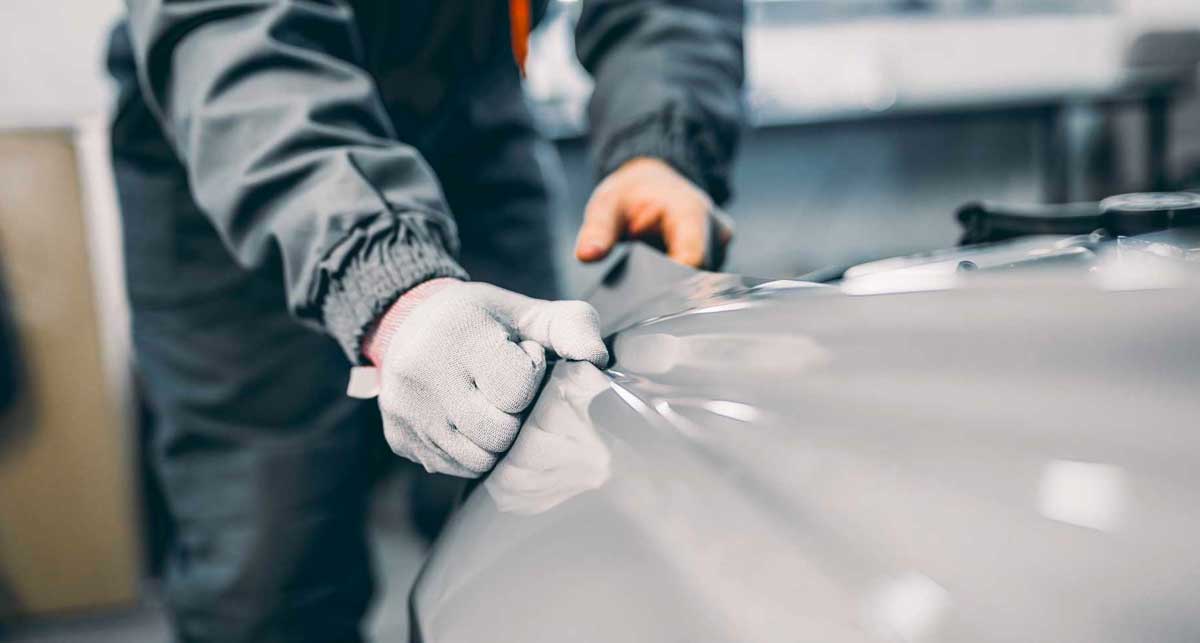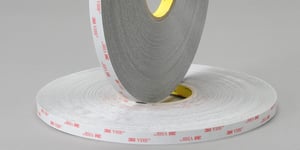How do you join two objects that can survive water damage, solvents, temperature extremes, and UV Light? One solution could be a permanent adhesive like 3M VHB.
Permanent adhesion comes in many forms, each with unique requirements. However, no matter how well or poorly the surfaces align, the bond must be strong enough to last over time without failing.
Strouse is steadfast in our commitment to helping customers discover the right material, and when VHB meets the correct requirements, we dedicate ourselves to finding the best version for each unique project.
If you’re wondering which VHB tapes will work best for your application, this guide will demonstrate different options and how to match them to specific use cases.
What Are VHB Tapes Used For?
3M VHB Tapes are double-sided foam tapes that can contour to the shape of an object and seal for the long term. Made from high-performance acrylic adhesives, VHB tapes are often easy to work with and built to last.
Numerous types of 3M VHB tapes are available to support each industry. For instance, automotive manufacturers use VHB adhesives for applications ranging from sealing to trim attachment to assembling the touchscreen displays.
There are VHB tapes designed for high- or low-temperature situations and tapes intended for weatherproofing or waterproofing. Other VHB tapes are designed to pass significant strength tests, in which some tapes show 90% of their strength within seconds of application, while others increase their strength over 72 hours.
All 3M VHB tape families offer specifications (datasheets) to review for your project before purchase. Many of these datasheets include information on specific applications, however, the number of applications grows faster than the lists can be updated. Ultimately, your application will determine which adhesive fits best.
What Are the Different Types of 3M VHB Tapes?
Several families of tapes are available within the 3M VHB tape products, each with its design considerations and properties. This list does not include all 3M VHB adhesive tape options, but it might provide a starting point for your application and bonding materials.
There are multiple ways to break down the different VHB tapes. Firstly, by use-case:
- Bonding paints and plastics: use VHB tapes 4941, 4991, 5925, 5952, 5962, or 4945
- Connecting dissimilar materials: use VHB tapes 4618, 4622, and 4624
- Surfaces with texture: use VHB tapes or 4941 or 4991
- Flexible vinyl (plasticizer resistant): use VHB tapes 941, 4945, and 4991 or for dissimilar materials, 4618, 4622, and 4624
Secondly, we could break down popular individual VHB tapes by their appearances and abilities.
1. 3M VHB Tape 5952— black double-sided acrylic foam tape 0.045 in. (1.1 mm) thickness✅High, medium, and medium-low surface energy substrates (aluminum, stainless steel, copper, zinc, tin, lead, anodized aluminum, glass, many plastics, powder paints, etc.)
✅Conformable foam for solid contact between mismatched substrates
2. 3M VHB Tape 4959— white double-sided acrylic foam tape 0.120 in. (3.0 mm) thickness✅General purpose adhesive, ideal for attaching logos to appliances, decorative material, trim, nameplates and logos, electronic displays, and panel frames
3. 3M VHB Tape 4611— dark gray double-sided acrylic foam tape with a red liner 0.045 in. (1.1 mil) thickness✅Used for assembly before high-temperature paint ovens, as a stiffener, or to attach panels, nameplates, and logos
✅Often used on metal substrates such as aluminum, galvanized steel, and stainless steel
4. 3M VHB Tape 4950— white double-sided acrylic foam tape 0.045 in. (1.1 mm) thickness✅Applications include decorative material and trim, nameplates and logos, panel to the frame, and stiffener to the panel
5. 3M VHB Tape - Specialty Tape 4910— clear high surface energy acrylic tape 0.040 in. (1.0 mm) thickness✅Clear with a clear core
✅Bonds well to high surface energy materials
There are a lot of ways to sort the different types of VHB. This process can help narrow down which materials to test, but ultimately, you need to perform functional testing to determine which material is correct.
Here are some specific characteristics or features that you should consider before selecting a specific VHB tape.
Choosing the Right VHB Tape
With so many VHB options available, searching for a material that suits your application can be intimidating. Take these factors into account when you’re looking for the right tape.
A. SEARCH BASED ON YOUR SPECIFIC USE CASE
Some VHB tapes are built for general purposes, while others have special features for specific solutions. These tapes are available for situations with high dynamic stress, applications to paints and plastics or plasticized vinyl, and conditions that require transparent tape.
General-purpose tapes are ideal for interior and exterior industrial applications or when sealing is required. Tapes with softer cores are well-suited for textured surfaces.
Special-use tapes are available for work situations where the tape is used at 0° to 10°C, parts that withstand higher temperatures, or those bonded before powder coating.
B. CHOOSE BASED ON ADHESIVE ABILITIES
The most essential factor in choosing a tape is whether it can stick to your desired material.
All 3M VHB tapes adhere well to glass, metals, and high-surface-energy plastics, including acrylic, ABS, polycarbonate, PVC, polyester, Polyamide, Polyimide, Phenolic, and Noryl.
Low-surface-energy plastics like PVA, EVA, polystyrene, acetal, and some paint, may require priming with 3M Tape Primer 94 or 3M VHB LSE.
Some surfaces require a level of abrasion for maximum performance, which you can achieve by removing dirt or oxide from metals or paints and then using palm or dual action sanders to create a finely abraded surface to help adhesion (approximately 180 to 320 grit scratch).
C. CONSIDER TAPE THICKNESS
The more precise the surfaces of the two materials being joined, the thinner the tape can be. However, mismatched or textured surfaces will require thicker tapes. The thickness should be up to 50% of the mismatch for an excellent bond.
When bonding large pieces of material, the material should be *at most* 2X the thickness of the tape. In other words, a 1.0 mm tape can bond a sheet of 2.0mm material.
The tape thickness to cover thermal expansion and contraction in a joint should be at most 3X the tape thickness. For instance, a 2.4 mm plastic sheet can be bonded to a metal using 1.1mm thick tape.
D. USE THE CORRECT AMOUNT
If you plan the correct amount of adhesive per application by partnering with a converter to create precise strips or measuring out your material, you’ll end up with minimal waste and reduce the number of urgent re-orders.
For instance, when hanging a sign or a panel (about 1 kg) to a wall, the general amount of tape needed for safety is 430 mm for 12.7 mm wide tape, 290 mm for 19.0 mm wide tape, and 215 mm for 25.4 mm tape.
The amount of tape may vary from project to project based on the selected tape specifications. Still, when the material cost is planned and documented, you can use your current expenses to predict future growth.
Where Do You Find VHB Tape?
Regardless of your project's conditions, you can find a tape uniquely designed to facilitate your needs. However, discovering the right VHB tape depends on your application plans. And even once you’ve found your dream material, the question is: what’s the best place to source it from?
If you plan on ordering rolls of material and using them as they come, you might order them from 3M. Yet, if you have a design in mind, are planning for automation, or want tape rolls in more specific lengths and specifications, consider speaking with a converter to get the best possible cost for your project quantities.
Working with a converter can help you consolidate VHB tape processing and grant you custom parts or rolls fitted to your project needs.
To learn more about 3M VHB tape, you can find more information on our VHB materials page.
Originally published: April 7, 2021

